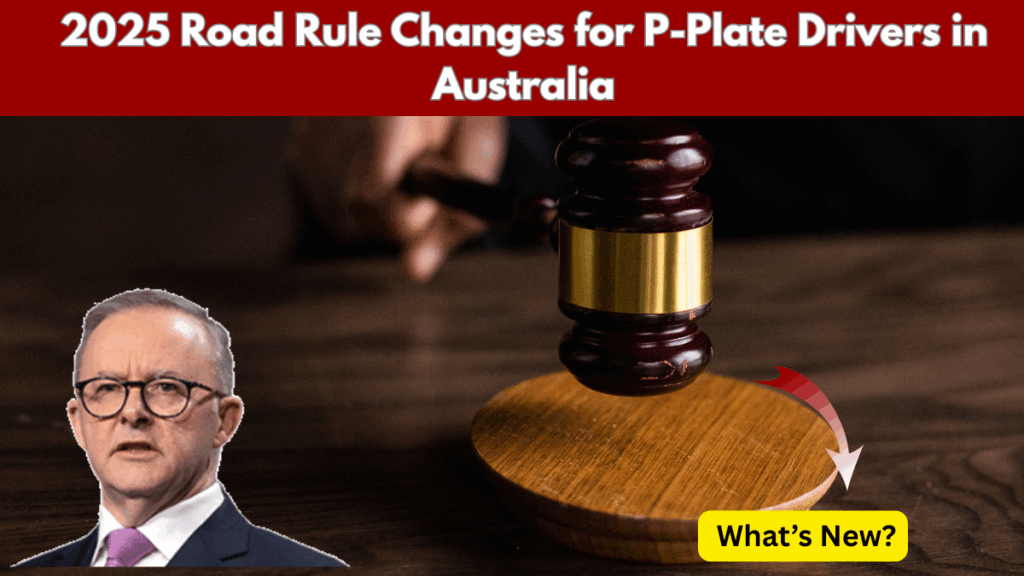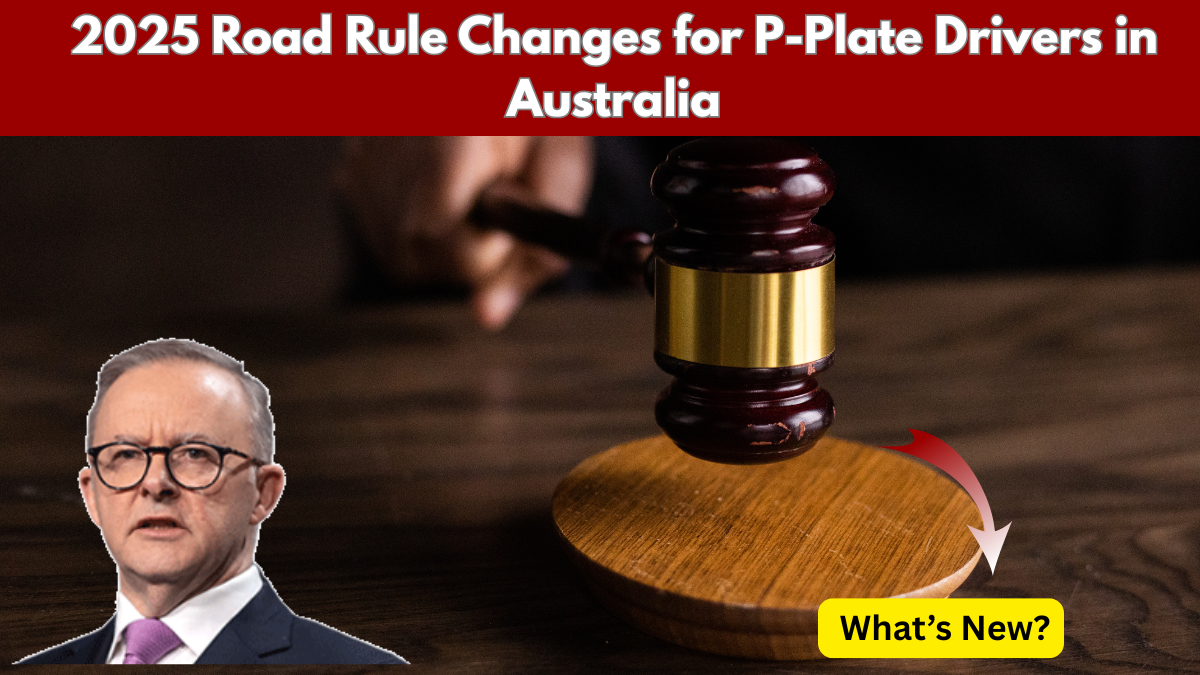From May 2025, P-plate rules 2025 in Australia will undergo significant updates, bringing stricter enforcement and new responsibilities for young drivers. The changes are part of a nationwide initiative to improve road safety, reduce accidents involving inexperienced motorists, and ensure that P-platers transition into fully licensed drivers more responsibly.
Authorities across multiple states have collaborated to introduce a more unified set of rules. These reforms particularly focus on mobile phone use, speeding, late-night driving, and passenger restrictions. Parents, driving instructors, and young drivers should be aware of these changes to avoid costly penalties or license suspensions.

Key Changes Under P-Plate Rules 2025
The updated P-plate rules 2025 bring several new regulations, which apply to all provisional drivers regardless of the state. Here’s a breakdown of what’s changing:
Mobile phone ban: Total restriction on any mobile phone use, including hands-free or navigation, for P1 and P2 license holders.
Passenger limit: No more than one passenger under 21 between 10 PM and 5 AM unless accompanied by a fully licensed driver.
Alcohol limit: Zero-tolerance alcohol policy remains in place, with increased roadside testing.
Higher penalties: Fines and demerit points for violations will now be stricter, including license suspension after fewer offenses.
The P-plate rules 2025 are intended to curb risky behaviors common among young drivers during their early driving years.
Why These Changes Are Being Made
Road safety data reveals that P-plate drivers are involved in a disproportionately high number of crashes, especially at night and when distracted. By tightening the P-plate rules 2025, authorities aim to:
Reduce fatal and serious accidents among young drivers
Encourage safe driving habits from an early stage
Align rules more closely across Australian states and territories
Studies show that increased driver restrictions during the provisional period significantly lower accident rates and insurance claims.
What Drivers and Parents Should Do Now
To comply with the P-plate rules 2025, provisional drivers and their guardians should take the following steps:
Stay informed by checking their local state’s road safety website
Adjust travel schedules to avoid restricted late-night driving hours
Remove all distractions from vehicles before driving
Reconsider carpooling habits, especially during prohibited hours
Driver education programs and driving schools are also incorporating these updates into their curriculum to better prepare learners.
Penalties for Violating New P-Plate Rules
Violating the P-plate rules 2025 could result in:
| Offense Type | Penalty |
|---|---|
| Illegal phone use | $572 fine + 5 demerit points (NSW reference) |
| Breaking curfew rules | Up to $500 fine + possible license suspension |
| Passenger restrictions | $300–$600 fine + demerit points |
| Alcohol-related offense | Immediate license suspension + court proceedings |
These stricter enforcement measures reflect how seriously the government views compliance among new drivers.
FAQs
What is the biggest change in the P-plate rules 2025?
The most significant change in the P-plate rules 2025 is the complete ban on mobile phone use for P1 and P2 drivers, even for GPS and hands-free calls.
Will these rules apply nationwide?
Yes, the P-plate rules 2025 are part of a national effort to unify provisional license regulations across Australia.
What happens if I break the curfew passenger rule?
If caught driving with more than one passenger under 21 during restricted hours, you’ll face a fine and demerit points under the P-plate rules 2025.
Are there any exceptions to the new passenger limits?
Yes, if a fully licensed driver is present in the vehicle, the passenger restriction does not apply under the P-plate rules 2025.
Do these changes impact P2 license holders as well?
Some of the P-plate rules 2025, like mobile phone bans and passenger limits, apply to both P1 and P2 drivers, depending on the state.
Click here to know more.
